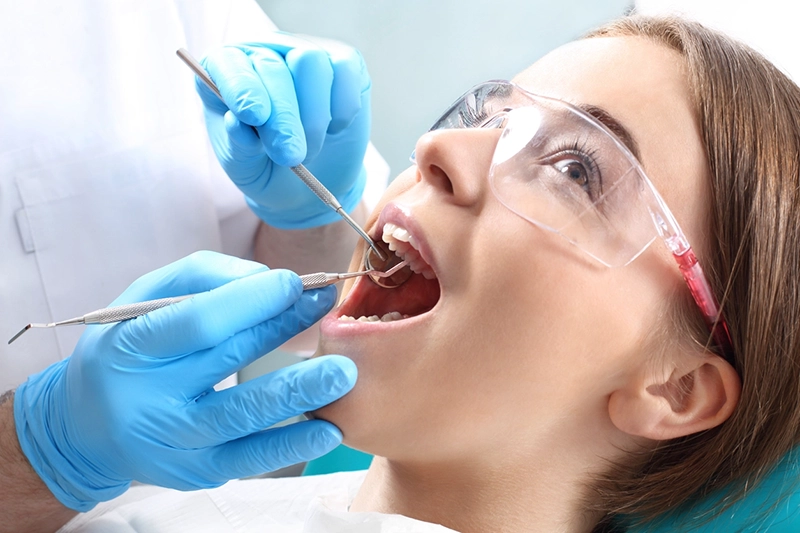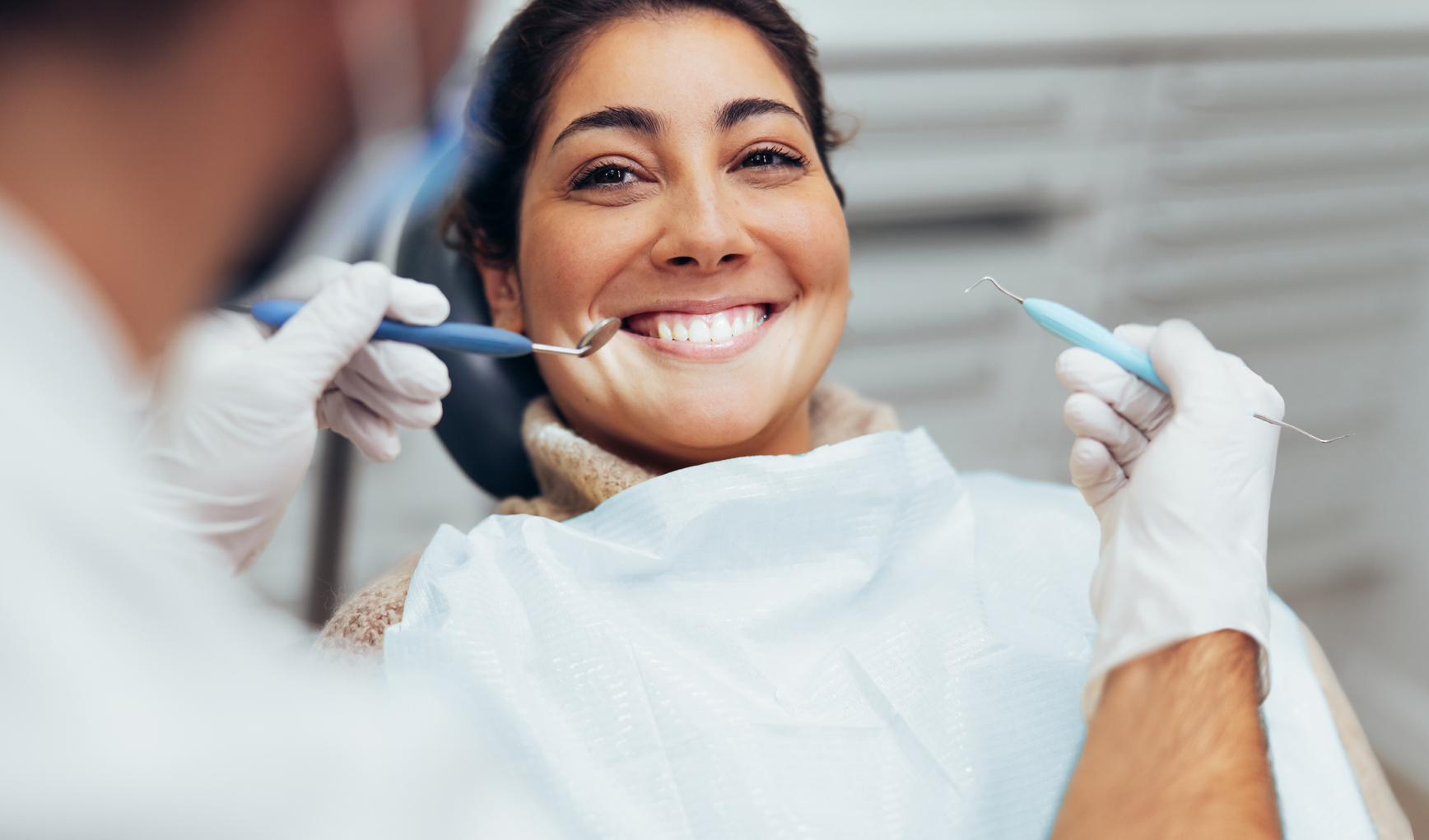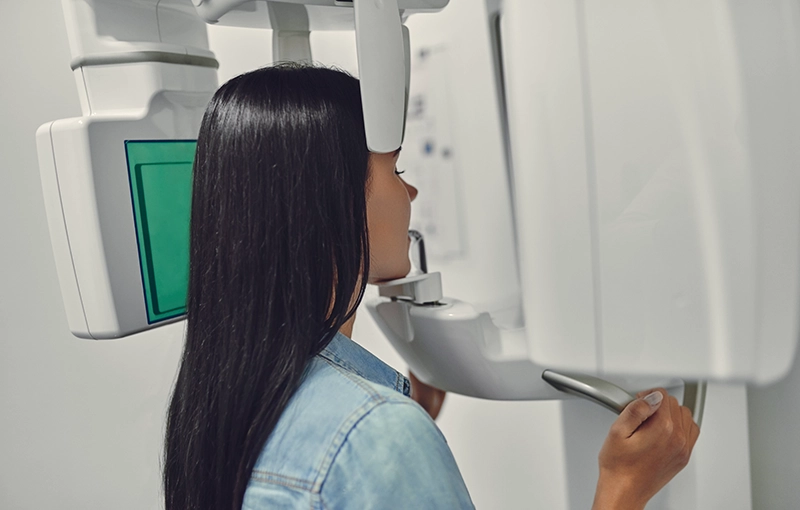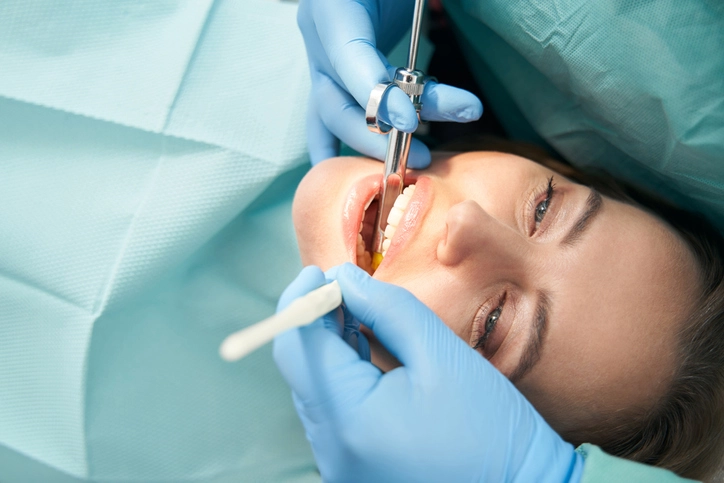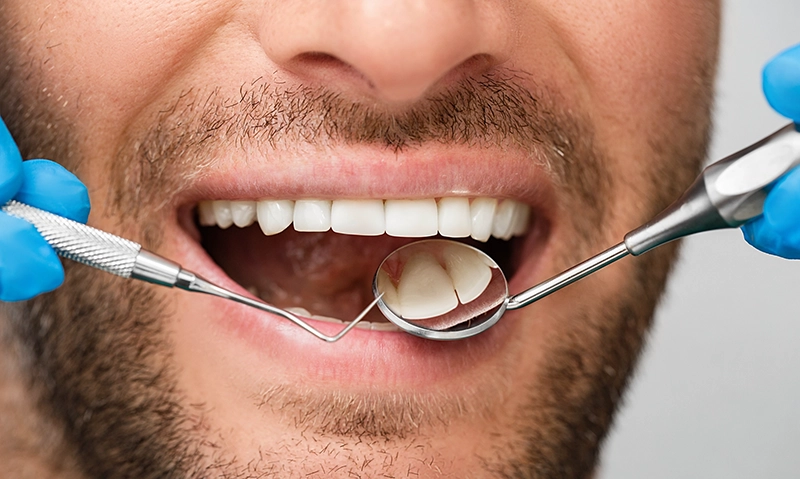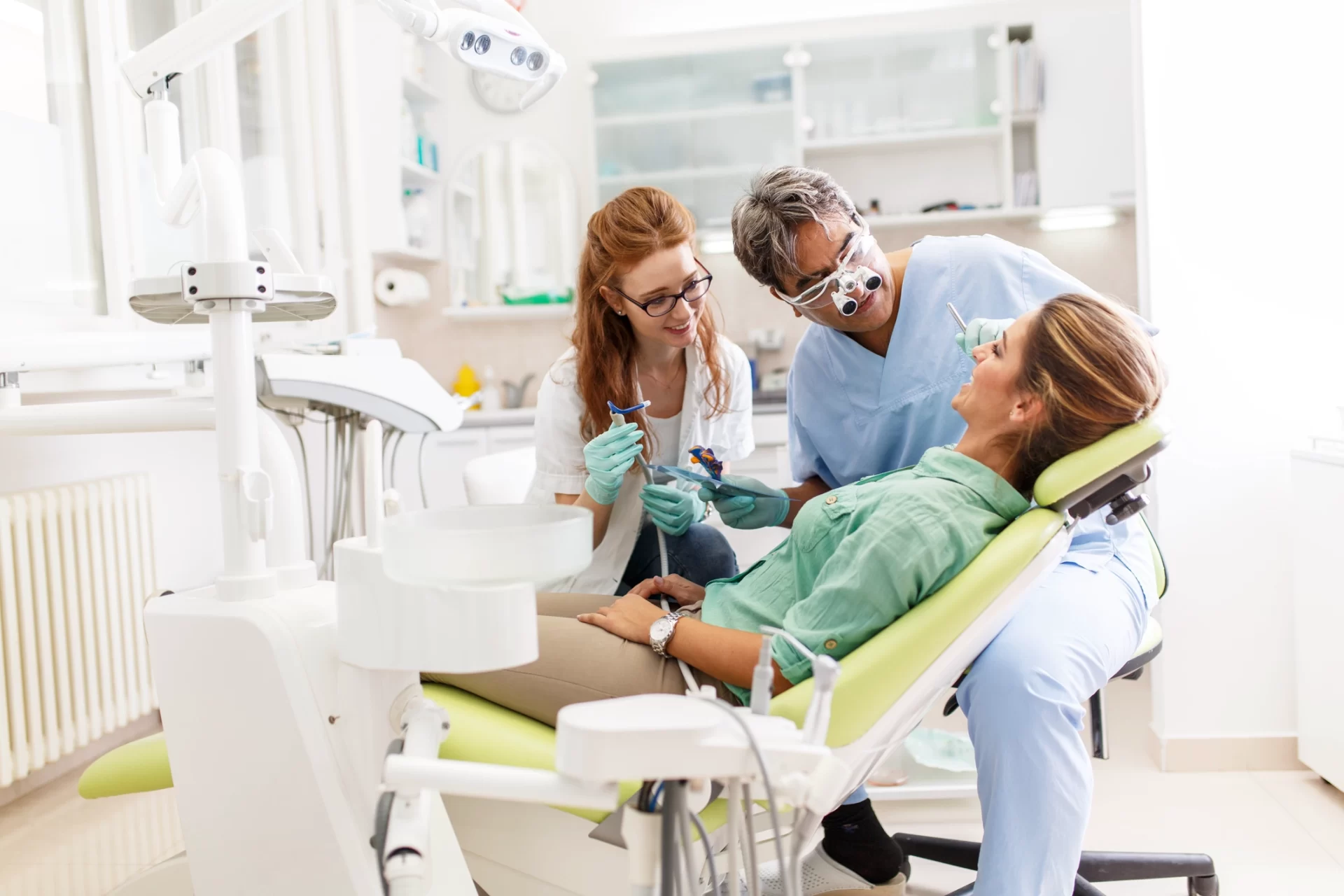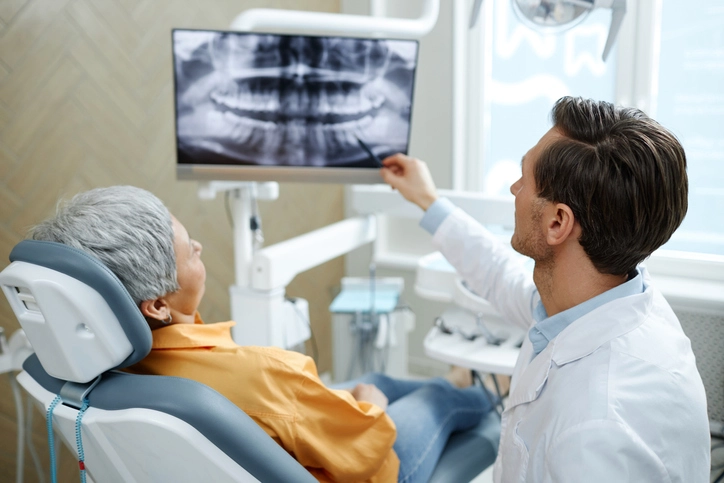Paradise Dental Studio is dedicated to promoting and maintaining oral health through regular dental exams and comprehensive care. If you have any questions or need to schedule a dental exam, please don’t hesitate to contact us. Our experienced team is here to support your dental wellness journey.
Dental Exam Fort Lauderdale FL
Maintain Optimal Oral Health with Our Dental Exam in Fort Lauderdale, FL
Regular dental exams play an important role in maintaining optimal oral hygiene and detecting potential problems early. That’s why we highly recommend scheduling a dental exam with our practice in Fort Lauderdale if it’s been more than six months since your last checkup.

Our Dental Exam Service in Fort Lauderdale, FL
Have you been putting off your dental exam for too long? You are not alone – many people avoid the dentist due to fear, anxiety, or just being too busy. But what you may not realize is that your oral health is directly connected to your overall health and well-being.
Why You Need a Dental Exam
Examining your teeth and gums is an important component of keeping optimal oral health. A dentist or dental hygienist will thoroughly assess your teeth, gums, and overall oral cavity during an examination of your teeth.
In addition, they will look for any indications of dental decay, gum disease, oral cancer, or other dental issues. X-rays may be taken to get a more comprehensive view of your oral health.
In addition to this, the dentist will examine your bite, the alignment of your jaw, and the quality of any dental restorations that are currently in place. Regular dental exams help identify problems early on, allowing prompt treatment and preventing further complications. It is recommended to have a dental exam every six months to maintain a healthy smile.

Dental Exam Procedures
Preventive Care: Regular dental exams are essential for preventing dental problems. They allow for early detection and intervention, reducing the risk of more significant issues in the future.
Oral Health Assessment: Dental exams allow your dentist to assess the current state of your oral health, including the condition of your teeth and gums.
Professional Cleaning: During a dental exam, a dental hygienist can perform professional teeth cleaning, removing cavities plaque and tartar that have accumulated on teeth can be a contributing factor in the development of disease.
Cavity Detection: Dentists use dental exams to identify cavities (dental caries) and tooth decay early on when they are easier to treat.

Dentist examining teeth of a female patient in dental clinic using dental tools. Happy woman getting dental treatment. Dental Exam Procedures
Gum Health Evaluation: The health of your gums is critical for overall oral health. A dental exam assesses the condition of you examine your gums and look for any indications of gum disease (periodontal disease).
Oral Cancer Screening: A screening for oral cancer is typically included in dental examinations. The purpose of this screening is to identify any indications or symptoms of mouth cancer at an early stage, when treatment is of the most benefit.
Teeth Alignment and Bite Assessment: Dentists evaluate the alignment of your teeth and your bite during dental exams, identifying issues that may require orthodontic treatment.
Bad Breath Management: Dental professionals can provide guidance and solutions for managing bad breath (halitosis) during dental exams.

Cleaning Teeth Below the Gumline
Cleaning teeth below the gumline, also known as subgingival cleaning or deep cleaning, is a vital part of a comprehensive dental exam, especially for patients with gum disease. It involves removing plaque, tartar, and bacteria from the tooth roots below the gumline.
The process typically includes:
- Scaling: The removal of tartar (calculus) from tooth surfaces below the gumline.
- Root Planing: Smooth and clean the tooth roots to prevent bacteria from adhering and promote gum reattachment.
Deep cleaning is essential for managing gum disease, preventing its progression, and maintaining gum health.

Bad Breath Management
Halitosis, or bad breath, is embarrassing and discomfort. During a dental exam, your dentist or dental hygienist can discuss the possible causes of bad breath and guide you in managing it effectively.
A lack of proper dental hygiene is one of the most common reasons for foul breath, gum disease, dental decay, dry mouth, and certain foods.
Management strategies may include:
- It is important to improve oral hygiene brushing and flossing your teeth on a consistent basis are examples of routines.
- Using antimicrobial mouth rinses to reduce bacteria.
- Addressing underlying dental issues, like gum disease or cavities.
- Staying hydrated to combat dry mouth.
- Keeping away from meals and beverages that are known to contribute to foul breath.

Oral Cancer Screening
Oral cancer that is not detected early can be fatal. Oral cancer detection is an essential component of a dental examination. Your dentist will look for signs or symptoms of oral cancer, such as abnormal tumors, sores, or discolorations in the mouth, gums, or pharynx, during this examination.
Consistent dental examinations are vital for holistic well-being, as they substantially enhance the likelihood of effective treatment following early detection of oral cancer.

Teeth Grinding
Teeth grinding, medically known as bruxism, can have a detrimental impact on your oral health. During a dental exam, your dentist may assess the signs of teeth grinding, including worn tooth surfaces, fractured teeth, and jaw pain.
Management of bruxism may involve:
- Wearing a custom-made nightguard or splint to protect teeth during sleep.
- Techniques for managing tension, given that stress can exacerbate teeth clenching.
- Dental treatments to repair damaged teeth if necessary.
Addressing bruxism early can prevent further dental complications.

Frequently Asked Questions -
Dental Exams
Have Questions? Need Answers?
At Paradise Dental Studio fo Fort Lauderdale, we’re always here to clarify and guide. Never hesitate to ask; your Dental Health is our top priority!
How often should I schedule a dental exam?
For most individuals, dental exams are recommended once every half a year. On the other hand, depending on the requirements of your dental health, your dentist could suggest taking a different regimen.
What should I do if I grind my teeth at night?
If you suspect teeth grinding (bruxism), discuss it with your dentist during a dental exam. They can recommend appropriate treatments, such as a nightguard.
Can a dental exam identify dental cavities?
Yes, dental exams are effective in identifying dental cavities and tooth decay. X-rays may be used for a more detailed assessment.
What should I do if I have bad breath?
If you have bad breath, consult your dentist during a dental exam. They are able to assist in determining the reason and provide the right therapy recommendations.
How can I maintain good oral health between dental exams?
Maintaining good oral health between exams involves practicing regular and thorough oral hygiene, including brushing, flossing, and mouthwash. Avoiding tobacco and limiting sugary foods and drinks also contribute to oral health.
Can a dental exam detect other health issues?
Yes, dental exams can sometimes detect signs of systemic health issues, such as diabetes or heart disease, as some symptoms may manifest in the mouth.
Is an oral cancer screening necessary for everyone?
Yes, an oral cancer screening is vital to a dental exam and should be conducted for everyone, regardless of age or risk factors.
What can I expect during a dental exam?
A dental exam involves assessing your dental and gum health, radiographs to properly diagnose any and all potential issues, and a custom-tailored dental treatment plan based on your specific needs.
Does insurance cover dental exams?
Many dental insurance plans cover regular dental exams as preventive care. It’s essential to check with your insurance provider for specific coverage details.
